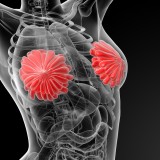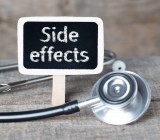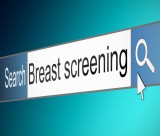Browse Library Database [B]
This is out Library. Please click on the article title to view the details.
Breast Cancer Leads to Positive Personal Growth
submitted by: admin on 11/07/2013
A study published in the journal Psycho-Oncology in October of 2013 showed that even though being diagnosed with breast cancer is intially a very stressful and fear-filled experience, there are benefits that included enhanced personal relationships, increased appreciation for life, a sense of personal strength, greater spirituality, and changes in life's...
Breast Cancer Overview
submitted by: admin on 06/25/2016
The important statistics about breast cancer are reviewed. Risk factors and three main cellular types are described. Mainstream and alternative treatments are reviewed. Integrative strategies make the most sense.
Breast Cancer Prevention and Treatment Through Exercise
submitted by: admin on 09/19/2013
Exercise is beneficial for both prevention as well as treatment for cancer and its spread. Lifestyle factors are often more effective than conventional cancer treatments yet this is largely ignored in mainstream medicine. Diet, sleep, exercise, vitamin D, sunlight are reviewed.
BREAST CANCER RISK REDUCTION: Nutritional Support Protocol
submitted by: admin on 12/02/2013
Breast cancer risk is related to genetics about 10% of the time. Environmental and lifestyle factors have much more to do with getting cancer and they are modifiable. Estrogen is a big player in causing cancer and we all know now that HRT increases the risk for breast cancer. There is a lot we can do to prevent activating cancer genes and to protect...
Breast Cancer Risks and Detection
submitted by: admin on 09/19/2013
Dr. Len and Nurse Vicki review factors that increase risk for and methods of screening for breast cancer. They cover mammograms, ultrasounds, manual examination, MRIs, and breast thermography.
Breast Cancer Screening
submitted by: admin on 09/19/2013
Should mammograms be done on women under the age of 50? The BCDDP study published in 1983 is reviewed. Five of six biopsies are not cancers. Older data on breast biopsies that suggests they spread cancer; it was later shown to be false.
Breast Cancer Screening in High Risk Patients
submitted by: admin on 09/19/2013
Different screening technologies are appropriate depending on your risk for developing breast cancer and situation. The pluses and minuses of mammograms, MRIs, and breast thermography for breast cancer screening are compared.
Breast Cancer Screening Premenopausally
submitted by: admin on 09/19/2013
No mainstgream screening test is reliable and they can lead to widespread overtreatment. A positive mammogram leads to too many biopsies, especially in dense breasts. Breast thermography is superior.
Breast Cancer Treatment Side Effects Last for Years
submitted by: admin on 06/26/2016
More than 60% of breast cancer survivors report at least one treatment related complication even 6 years after their treatment. Thirty percent are dealing with two issues such as lymphedema, skin reactions to radiation, upper pody symptoms and functional limitations, weight gain, fatigue, and peripheral neuropathy from chemotherapy.
Fragmented care leads...
Breast Cancer: How to Screen for it
submitted by: admin on 09/19/2013
Screening for breast cancer is confusing and mammogams in younger women are simply not reliable. The screening tool that does work very well is breast thermography. The early work on this is reviewed.
Breast Cancer: What Makes It Spread
submitted by: admin on 09/19/2013
When you have breast cancer, malignant cells are constantly spread in the body. Why don't they always take hold? The biological terrain determines this and is discussed. Host defenses and degree of malignancy are addressed.
Breast Imaging for Pain is Not Useful
submitted by: admin on 06/25/2016
Women witlh breast pain who receive imaging as part of their evaluation undergo additional testing with mammograms, ultrasounds, and MRIs are often biopsied. However, they do not benefit according to a Boston University School of Medicine study published in March of 2012 in the Journal of General Internal Medicine. Pain is rarely a presenting symptom...
Breast milk is a probiotic
submitted by: admin on 09/19/2013
Spanish researchers reported in the January 2013 issue of the American Journal of Clinical Nutrition that there are more than 700 species of bacteria in normal human breast milk. They suggest that this is one of the factors leading to which bacteria will colonize the infant's digestive tract.
Mother's milk is primarily lactose, but it is...
Breast Thermography
submitted by: admin on 12/08/2013
We don't have a good test in mainstream medicine for breast cancer detection in premenopausal women. Breast thermography's history, method of action, and proficiency in screening for cancer is discussed.
Breast Thermography on KEST Radio
submitted by: admin on 09/19/2013
Breast thermograpy is the best screening technology in medicine for breast cancer in pre-menopausal women. There is no radiation and there are few false positive and negative results. Mammography is compared.
Breast Thermography: Accurate breast cancer risk assessment with thermal imaging
submitted by: admin on 11/22/2024
Breast Thermography: for the earliest cancer detection
submitted by: admin on 02/20/2015
Health Medicine Center Services
Breast Thermography — for the earliest cancer detection
What You Should Know about Breast Thermography
Also see:
Breast Screening Preparation
Beyond Mammography
Breast thermography, or MammoTherms are an FDA-approved technology that provides very useful information that can...
Breast Thermography: Is It Underutilized?
submitted by: admin on 09/19/2013
The FDA published information in Journal Watch in June of 2011 that is packed with presumptive and incorrect information about breast thermography and they have to know it! Breast thermography was approved in 1982 as an adjunct to mammography to evaluate for breast cancer. In 2004 the FDA rejected breast thermography as a stand alone test for breast...
Breath as a Life Source Energy with Dennis Lewis
submitted by: admin on 09/19/2013
Our nervous system regulates how we breath. When we're under acute stress our sympathetic nervous system regulates our breath and when we're relaxed the parasympathetic system regulates. Natural breathing is discussed.
Breathing for Hypertension with Deane Hillsman, MD
submitted by: admin on 09/19/2013
Hypertension can be helped by breathing properly. How we breathe affects our blood pressure as much as 10-15 points. Sympathetic vs parasympathetic breathing has a major effect on blood pressure. Slow abdominal breathing is relaxing. Relaxed breathing is more efficient, especially during prolonged exhalation. Breathing patterns can be taught that increase...




